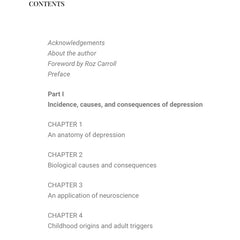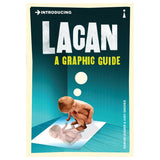Depression: An Introduction Author - Barbara Dowds
£0.00
This book attempts to do justice to the depth and complexity of depression – as to its causes and its treatment in psychotherapy. It challenges the reductive medical view of depression as a serotonin deficiency resulting in a collection of undesirable symptoms to be dispatched with antidepressants or CBT exercises. Rather, it locates the origins of depression in childhood adversity, primarily caused by unattuned, cold, critical, hostile or abusive caregiving. Insecure attachment interacts with other elements of a stressful life history as well as with genetic makeup to pave the way for depression. Such a childhood has long-term impacts on the setting of the stress and threat responses of the nervous system.
Depression fundamentally indicates a weak and non-resilient sense of self, coupled with limited capacities for trust and either autonomy or intimacy in relationships. These are the issues that must be tackled in psychotherapy. Since depression carries a message for the sufferer, it must be investigated for its meaning. Why has the individual withdrawn from life and what are they being asked to change in how they live and relate?
Before this reparative and creative phase of therapy can begin, however, we must remember that depression is not just ‘low’ mood but also ‘stuck’ mood. Rigid beliefs and processes that block therapeutic engagement can be gently questioned by helping the client see that they are held by only one part of the self, whereas other ‘for growth’ parts carry hope and a willingness to play and explore. Overall, it is crucial in working with depression to see and to relate to the client as a whole person; not simply a bundle of cognitive shortcomings to be corrected, but as an emotional, organismic, relational, existential and spiritual being.
Depression: An Introduction presents a biopsychosocial model, combining developmental and attachment perspectives with genetics and neurobiology. Its therapeutic orientation is humanistic and integrative but has much to offer anyone wanting to know more about this widely known but little understood condition.
Publisher: Phoenix Publishing House
Published: April 2021
Format: Paperback
Pages: 178






